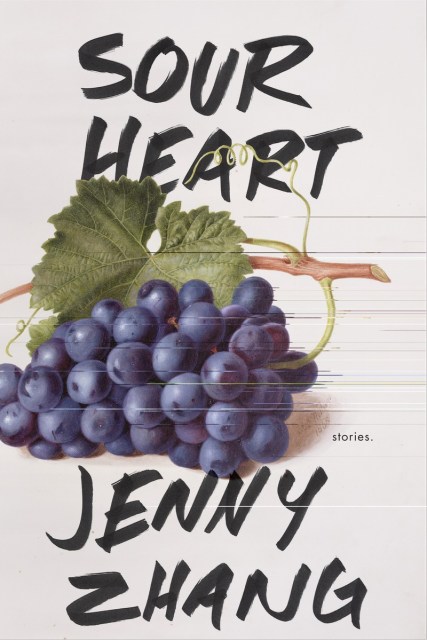
Hi and welcome to this week’s Lez Liberty Lit!
Things About Queer Books (And Other Books Relevant To Your Interests)
“I became a patriot because I was a horny, queer teenager who loved reading smut. I didn’t know it at the time, but my adolescent obsession with dirty stories would lead me to a lifelong devotion of defending First Amendment rights,” writes Zoe Fisher at the Rumpus:
“‘Libraries support free access to information,’ Bess explained. ‘One of our core values is intellectual freedom. This impacts all of you because when you’re volunteering for the library, we expect you to support the rights of library users to find and read whatever they want, even if you don’t agree with what they’re looking for.’ […]
Heads around the room nodded, and I leaned back into the wall, letting her words sink in. It was absolutely, positively the most radical, punk rock thing I had ever heard in my life.
I can read whatever I want. No one can stop me.
I can help other people read what they want. And no one can stop them.”
“Imaginary black children remain almost as marginalized as real ones, at least in mainstream publishing,” writes Andrea Adomako at the Establishment. Andrea continues: “[W]hat children read is more than just frivolous entertainment. It’s an imaginative, safe space in which they can experiment with different modes of selfhood and citizenship. So what does the history of the representations of black children in the U.S. reveal about the cultural tools they’ve been handed, and with which they’ll need to fashion their own lives and futures?”
Indigenous languages are dying.
I am obsessed with Eve Babitz.

“Jenny Zhang’s new story collection is an elegant and unconventional take on the immigrant story,” writes Bijan Stephen of Sour Heart. “Zhang’s writing strips away the layers between reader and experience; her gaze is unflinching, and she never cuts away when things become uncomfortable or grotesque. The effect is something like watching a wound scar in reverse. It seems to say: This is the site of trauma. I might heal, but I’ll never be the same.”
The language that addresses a system of racist oppression is too gentle, argues Anna Kegler at the Huffington Post:
“The language we use to talk about racism is obviously distorted, a big clue that something is being hidden. It’s pretty easy to pinpoint the source: most White people can’t handle talking about racism. We flail. We don’t understand the subject, we get really uncomfortable, and we either clam up because we don’t want to say the wrong thing, or we bust out the whitesplaining (FYI, this is a best-case scenario. It can be much worse).
To mitigate our shortcomings, we surround ourselves with comforting words. Words that feel neutral. Words that don’t point fingers (at us). Words that center Whiteness, while erasing the harshness of discrimination and segregation. We reject words that we feel are too direct, that might reveal complicity on our part.”
“This summer I want to do a lot of work because I really haven’t done anything for ages and there are a couple of things I’d like to finish before I die,” says poet Elizabeth Bishop in an interview in the Paris Review.
How do you organize your bookshelf?
Trump ruined book sales.
There’s a new queer witch of color comics anthology.
Read these new trans books. Check out these ten adult coloring books. Bitch recommends these ten books this August. The Cut recommends these ones. Comics creators say to read these comics at the beach. Or check out these Canadian queer beach reads.








Comments
I know I’ve only bought one book this year because I am now terrified about money. I basically live at the library instead.
The library is a great place to be!
So, the first thing I did after the 2016 election was binge purchase a lot of polytheistic philosophy books because I am that scared of the Christian Right. Everything from Iamblichus to queer polytheistic mythos. And then I made a budget line item to buy more queer books and comics. And then I started supporting scifi lit mags on Patreon. Maybe I am just weird to find books comforting.
I should also say that the initial binge wasn’t great for my wallet, but I am worried about intellectual crackdowns. And I nearly abandoned launching my podcast novel because I was anxious for about a week over the risk if things get really bad — but then I got mad at myself and decided that 45 and my anxiety about the future wouldn’t control me.
I have been controlling the amount of news I am reading, and as a replacement, the scifi lit mag short stories are a gods-send.
I organize my books according to subject/genre (one per shelf) and then height, so each collection kind of slopes downward.
I organize my books solely by how they look next to each other. I can never find anything.
Dewey decimal for non fiction which encourages me to be picky cos if I read one book then another on the same topic & the second isn’t as good I get rid of it (I read in order of what’s on my shelves). Geographical for the rest, in alphabetical order & with poetry then plays then fiction. Allows me to see I have loads of certain authors. They’re right geographical is complicated so w authors I know well I go w where I associate them w.
Can you tell I’m a former librarian/lifelong aspie?…
My mum did the shelving here (new house) in colour order then announced ‘we have lots of red books and lots of green books’
I have an aggressive weeding practice for my personal collection — but if it were bigger, I’d definitely use a system beyond what I have now. I only have about 200 books, so it’s easy to find what I need. I’m really impressed that you do Dewey. ?